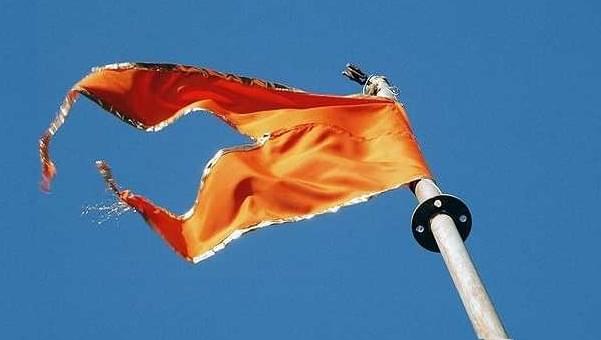Politics
SC Effort To Re-Examine 1995 Verdict On Hinduism/Hindutva Is Exercise In Futility
R Jagannathan
Oct 19, 2016, 02:33 PM | Updated 02:33 PM IST
Save & read from anywhere!
Bookmark stories for easy access on any device or the Swarajya app.


The Supreme Court is set to re-examine an old verdict of the court which held Hinduism as a way of life rather than just a religion. This verdict of 1995, given by a three-judge bench headed by the late Chief Justice of India JS Verma, is said to have empowered the BJP to seek votes in the name of Hinduism.
The court can waste its time doing all this, but it is not going to make one bit of difference to anyone seeking votes in the name of religion, a practice supposedly banned under section 123 (3A) of the Representation of People Act, 1951. This clause lumps as a corrupt practice any “promotion of, or attempt to promote, feelings of enmity or hatred between different classes of the citizens of India on grounds of religion, race, caste, community, or language, by a candidate or his agent or any other person with the consent of a candidate or his election agent for the furtherance of the prospects of the election of that candidate or for prejudicially affecting the election of any candidate.”
Promoting hatred or violence obviously has to be a big no-no, but can appeals for votes from a religious or race or caste group essentially be banished? In a free country that gives freedom of conscience and religion to everybody, how is an appeal to religious solidarity a corrupt practice? If freedom of speech is sacrosanct, how does it matter what is the basis on which a vote is sought as long as there is no element of promoting hatred and exhortations to violence? Is free speech a valid cause only in times other than election periods?
Section 123(3A) has been overinterpreted in our pseudo-secular republic.
The Supreme Court will also examine if exhortations by religious leaders to vote for one party or the other are barred under section 123(3A), but this again is an affront to free speech. How can you ban anyone, including a religious head, from speaking out on who to vote for? Haven’t mosques, gurudwaras and churches been doing exactly that all these decades? If not directly, then indirectly?
In the last Tamil Nadu assembly elections, the Tamil Nadu Bishops' Council President, Anthony Pappusamy, said they had decided to support the DMK-Congress alliance since “the need of the hour is to safeguard secular and democratic values." Now, if this is going to be declared a malpractice, maybe the Supreme Court should consider setting aside the elections of all DMK-Congress candidates, but would that make sense? The church merely exercised its right to free speech, however narrow that may be. In the last Mizo elections, some candidates said Christian values were under threat.
One can question the propriety of such politically loaded and narrow-minded exhortations, but they all fall squarely in the area of free speech, which can’t be curbed.
In any case, how are you going to decide what is an exhortation directed at people belonging to a particular religion, race or caste? Maybe, if a candidate says “vote for me because I am a Hindu” would not pass muster, but what if he says “I will legislate to create a Ram Mandir”, or will work to create Ram Rajya, something even Gandhi has spoken about?
A Muslim seeking the religious vote merely has to say the BJP is interfering with religious freedom by backing the ban on triple talaq to send a coded message to his community. A Jat seeking the Jat vote will say he is batting for quotas for his community. The Supreme Court can do little about dog-whistles, which don’t overtly refer to religion or caste, but everyone will understand the sub-text. If the Congress appeals to minority sentiment, it does not have to say “all Muslims should vote against BJP”, but talk about how the BJP is threatening religious freedom by its campaign for beef bans. And how difficult is it for a Mayawati to use a Una incident or a Dayashankar’s statement about her to emotionally pressure Dalits to stay with her? It is not a direct appeal to the caste vote, but works just as well.
It is also an open secret that the Samajwadi party seeks Yadav and Muslim votes, and the IUML largely Muslim votes. And the Akalis seek the Sikh vote. Just because this is not explicit, it does not mean subtle pandering to bring in the religious vote is not happening.
The Supreme Court will get nowhere with its attempt to redefine Hinduism and Hindutva either, for the reality is that both descriptions – Hinduism as a way of life, or as a specific religion – may be true. Hinduism is not one specific religion, but an approach. It has no core belief systems like Islam or Christianity, with a common god or an accepted holy book. And Hindutva is just Hinduness – the quality of being Hindu. While Hindutva is also a word identified with political Hindu nationalism, where a word has several meanings, one wonders if it can be reinterpreted by the Supreme Court to mean only one thing.
Simply put, the SC’s effort is an exercise in futility. Whatever it does, appeals to religion, whether directly or indirectly, will not disappear. It is better to focus on the real corrupt practices that section 123(3A) seeks to ban, which includes bribery and corruption and inducements.
But here we have seen no effort.The court can waste its time doing all this, but it is not going to make one bit of difference to anyone seeking votes in the name of religion,
Jagannathan is former Editorial Director, Swarajya. He tweets at @TheJaggi.





